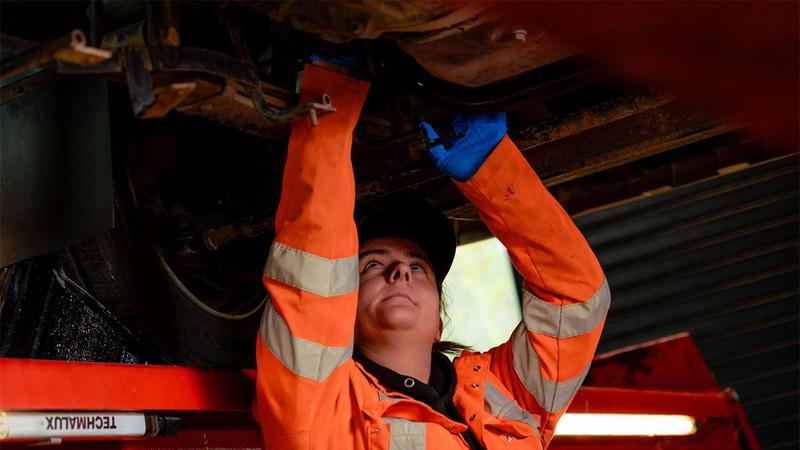
In a tight labour market and with rapid technological change across the transport sector, apprenticeships are a strategic investment in resilience, capability and future-readiness for forward-thinking HGV and fleet operators.
Here are five compelling reasons why bringing maintenance training in-house delivers financial and operational returns, with apprenticeships building more than just technical skill.
1. Financial return and lower risk
Hiring experienced technicians is expensive and the risk of a poor fit is real. In contrast, apprenticeships let you recruit talent you can mould and 95% of their training is funded by the government.
Having more capable in-house technicians will save your business money through faster turnaround, fewer external repairs, fewer subcontractors and less downtime. And with your own training pipeline, you’re not reliant on the external labour market to fill your skills gaps, whether that’s electrical, diagnostics, automation or sustainability.
2. Operational advantages and control
Whether your fleet is moving to electric, hybrid, or is already heavily investing in automation, you can align apprenticeships to your specific technologies, manufacturers and workflow. Apprentices will learn the exact systems your business operates.
Many workshops rely on an ageing workforce whose expertise has been built around diesel engines, but an in-house apprenticeship cohort helps prevent ‘brain drain’ when senior staff retire or leave. Knowledge stays within your organisation.
As fleet size or complexity grows, you already have a pipeline of technicians ready to scale up, rather than needing to scramble for talent.
3. Soft skills and workplace culture
While technical competence is undeniably critical, successful HGV operators thrive on much more than hands-on diagnostics.
Apprenticeship programmes such as the Heavy Vehicle Service and Maintenance Technician, Bus and Coach Engineering Technician or Engineering Maintenance Technician are uniquely placed to build soft skills such as communication, teamwork, problem-solving, time management and professionalism.
4. Alignment with local strategy and future skills
By investing in apprenticeships in Greater Manchester, you align directly with the region’s Local Skills Improvement Plan, which prioritises green skills, sustainability and automation.
Likewise, the Greater Manchester Transport Strategy 2040 sets the target of carbon neutrality by 2038, meaning fleets will increasingly adopt low-emission and electric vehicles, intelligent diagnostics and automation. Apprentices trained in these areas will help drive your fleet’s long-term success.
5. A strategic, future-proof investment
For HGV operators, apprenticeships are a pathway to resilient, flexible and high-performing in-house capability. You’ll get ROI from lower downtime, more reliable maintenance, reduced hiring risk, and a workforce equipped for the low-carbon, electric, automated future.
Now is the time to equip your business for the road ahead.
To find out more about our Heavy Vehicle and Engineering apprenticeships, and how we can help you grow your future workforce, contact us here or call us on 03333 222 666.




